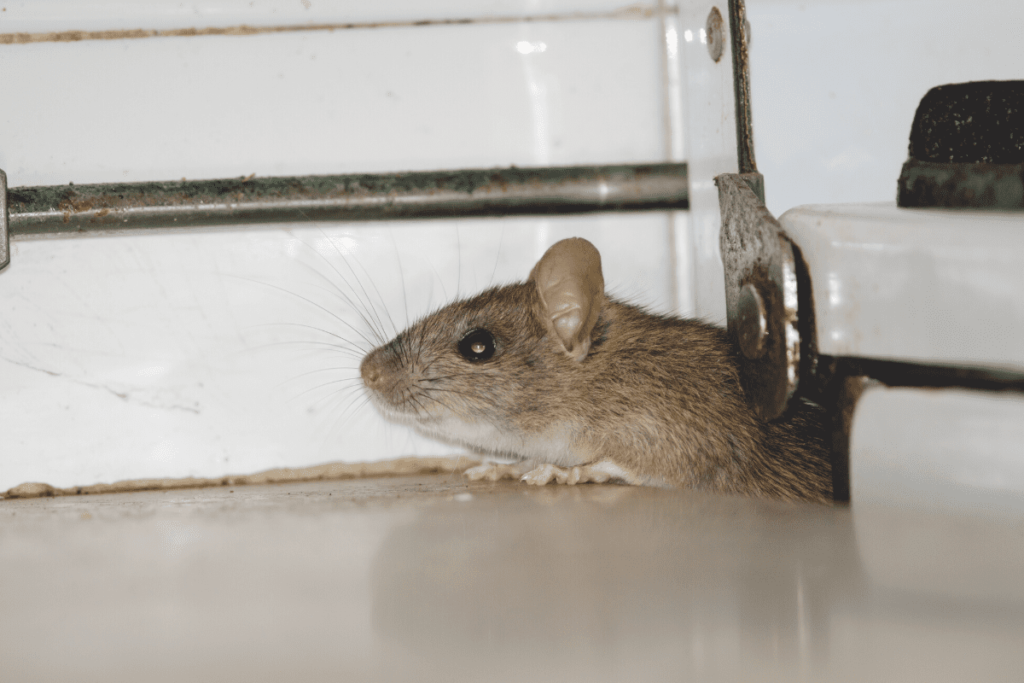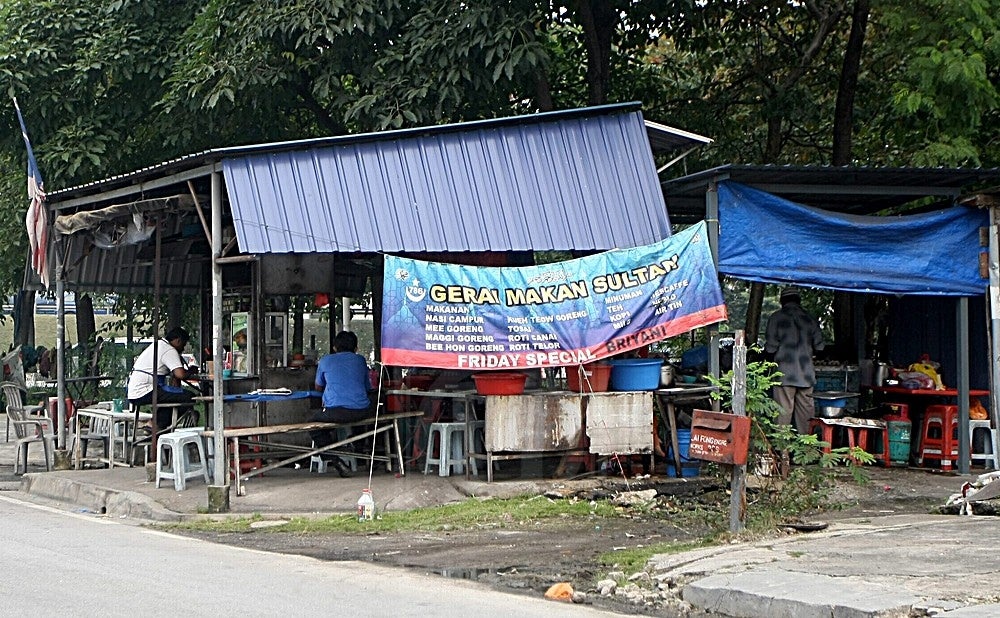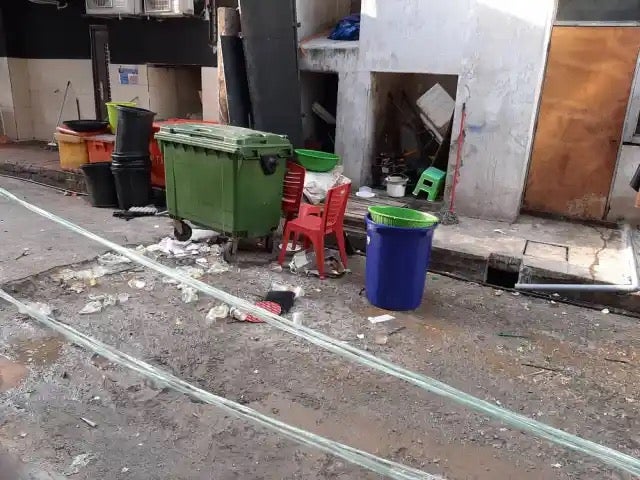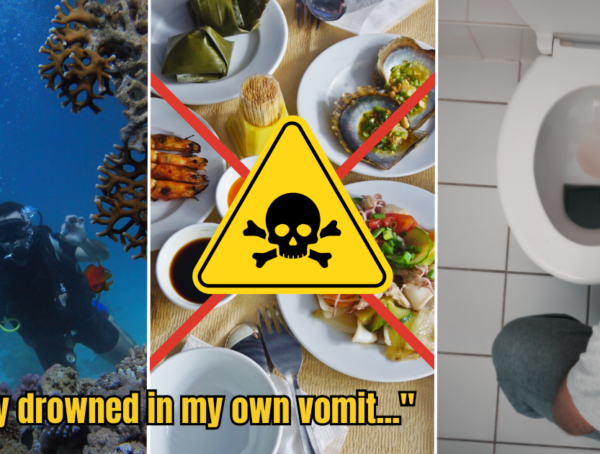Disclaimer: In Real Life is a platform for everyday people to share their experiences and voices. All articles are personal stories and do not necessarily echo In Real Life’s sentiments.
We have a great street food culture here in Malaysia. But with gerais and mamaks, the food may be cheap but food poisoning seems to be a possibility. Recently on social media, there have been widely publicised cases of food that had gone bad even before purchase – users have posted pictures and videos of mould and worms in their food.
Sadly, Malaysia’s hot and humid weather is conducive to the growth of bacteria in food. Although the incidence of food poisoning and other foodborne illnesses locally is quite low, it is not rare.
So why is the food safety and handling in Malaysia so bad? Here are 4 reasons why:
1. Questionable hygiene of eating establishments
“Sometimes you go to a medan selera and it’s so filthy,” Rina complained. “I ate at this place the other day that had a sandy area nearby and because the workers fed the stray cats, you could smell cat sh*t wafting over as you eat!”
Some places are also unfortunately located near longkangs, huge ones full of rubbish. The smell emanating from the sewers is not the only deterrent – you also have to do battle with the flies for your food.
“Of course, the food in these places are really cheap, but it makes you wonder how much quality you’re sacrificing by buying food at these smaller places.”
Rina says that she does feel bad for gerai owners and she understands that making food is their livelihood, but she also does have doubts about the safety of their food.
2. System behind food handling certification is flawed
In order to work with food, you have to take a food handling course certified by the Ministry of Health. It’s kept cheap so that it’s affordable – Adam recalls that he paid RM50 to attend the course.
The course itself lasted a couple of hours. “Not more than 6, maybe,” he shared. But here’s the issue: it was more like a certificate of attendance. “I don’t feel any more equipped to handle food after the course, mostly because I think my workplace did not comply with the standards.”
Adam compares the food handling course to the course you first attend when you’re taking your driving/riding licence. “You’re just sitting there and staring into space while the person talks and talks.”
There is little follow up after the course. Besides that, the certificate lasts for your entire life as there is no expiration date. It’s recommended that food handlers take refresher courses after a while, but this practice is not enforced.
So all you have to do is attend the course once and you’re qualified to handle food!
3. Food improperly prepared and kept
Back when Teena was working as a cook, she remembers how frozen burger patties were removed at the beginning of her shift and left out at room temperature for hours. The patties that weren’t used were returned to the freezer for storage and taken out again the next working day. “Sometimes I felt like the meat smelled really bad, but the business owners told me to just go ahead and cook it anyway.”
Her main concern was scientific. “When you leave food outside at room temperature for a long period of time, what you get is a multiplication of the bacteria in the food.” Once the food is cooked, the bacteria is killed but the toxic waste is still left behind.
“So basically it’s not safe to even reheat food after it’s left out for a while, but in my experience you don’t get that kind of caution when you’re eating at a small or medium sized eatery.”
Other than that, she also realised that her former workplace did not have separate areas for raw and cooked food. “Everything was all over the same place regardless of whether it was cooked or not!” The reason why this is important is because cooked food can become contaminated if it comes in contact with raw food.
4. The existence of pests isn’t taken seriously by business owners

Flies are a common pest here when it comes to food. Thanks to our weather, flies are so commonplace that some gerai have innovative ways to prevent flies from landing on their food. But there are other pests that can exist in kitchens.
Adam remembers the rat problem a previous workplace had. “It was awful – do you know how bad rats smell?” The worst experience he had was when a rat crawled into a pillar and died. The pong was intense. The restaurant had to close for that day and only allowed takeout as the odour could not be covered up.
If you live in the Klang Valley, you may also be aware of the rat problem in SS15. Some of the rats are so big they could be mistaken for cats. But KL is no stranger to rat problems too.
Rats are carriers of disease: there are more than 35 diseases that can be caught from them!
“Ugh I hated finding rat urine and faeces in the kitchen… The worst part is that the business I worked for didn’t take rat droppings as seriously as I did. I wanted to deep clean the kitchen each time, but the owners wanted to only clean the area that the droppings were found in. At the end of the day, I was single-handedly running the kitchen so I never had enough time to do what I thought was necessary.”
Adam thinks it’s possible that other food businesses could suffer from the same issues.
Malaysian food handlers need a lot more education on food safety
It’s clear that despite the certification requirements, the regulations surrounding the F&B industry are just not enough. Authorities do carry out inspections, but are those measures enough?
As always, prevention is better than cure: there needs to be stronger protections in place for consumers.
For more stories like this, read: The Non-Muslim’s Guide To Understanding The Concept & History Of Halal In Malaysia, 5 Malaysians Share Their Favourite Non-Mainstream Local Food, and The Worst Habit Malaysians Have: Littering.
You might also like
More from Real Skills
How I Saved Almost RM50,000 On Buying My First Car
Here's how this Malaysian man with a RM3,500 salary saved RM50,000 on his first car.
Angry M’sian Boss Demands Unpaid Overtime Over Raya, Causes 9 Staff To Quit
An anonymous employee at a local SME shares how a bad-tempered boss eventually caused 9 staff to quit before Hari …
I Studied In Chinese School As A Malay Boy, Here’s What I Learnt
Every time I used Mandarin outside of school, family members would come up to me at gatherings and ask me …



















